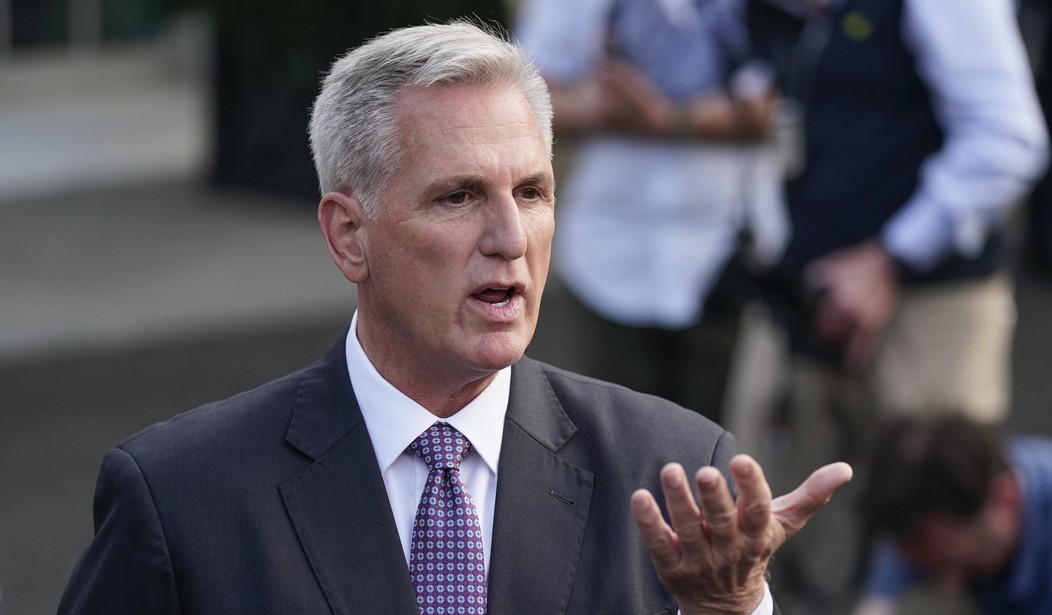The National Defense Authorization Act (NDAA), which funds the entire military for the fiscal year, usually gets overwhelming bipartisan support in Congress. There are tens of billions of dollars in defense construction contracts for the home folks and weapons contracts for favored defense manufacturers.
The House voted on Friday 219-210 to approve this year’s NDAA. Four Republicans voted against it while four Democrats voted for it — a far closer vote than the NDAA has received in the past.
But this year, Republicans put a couple of poison pills in the bill that will make it very hard for Democrats to swallow. There was an amendment passed that would prohibit the health care program for active-duty service members from covering “sex reassignment surgeries and gender hormone treatments for transgender individuals.” Another amendment would prohibit gender transition procedures through the Exceptional Family Member Program.
There is also an amendment offered by Rep. Chip Roy that would prohibit topics such as the U.S. being “a fundamentally racist country” being promoted. Opposition to these amendments by Democrats caused Speaker Kevin McCarthy to remark, “Do they want Disneyland to train our military, or do they want a military that can defend the nation?”
But by far the most controversial amendment would reverse the Pentagon’s policy of reimbursing travel expenses for service members who get abortions. That policy so enraged Senator Tommy Tuberville (R-Al.) that he’s placed a “hold” on hundreds of military promotions in protest, driving the White House to call the block “irresponsible” and “jeopardizing U.S. security.”
All in all, House Democrats were livid with the Republican right.
“Extreme MAGA Republicans have chosen to hijack the historically bipartisan National Defense Authorization Act to continue attacking reproductive freedom and jamming their right-wing ideology down the throats of the American people,” House Democratic Leader Hakeem Jeffries, Democratic Whip Katherine Clark, and Caucus Chair Pete Aguilar said in a statement. “House Republicans have turned what should be a meaningful investment in our men and women in uniform into an extreme and reckless legislative joyride.”
To pass the bill Friday as planned, McCarthy and House GOP leaders will either have to count on Democrats to overlook the amendments pertaining to explosive social issues, or convince hard-line conservative Republicans — including those who have opposed the NDAA in the past — to vote for it and ignore their concerns about U.S. support for Ukraine.
Rep. Thomas Massie (R-Ky.) said he has never voted in favor of the annual defense bill in the decade he has been in Congress, but in good news for McCarthy, he said he’s reconsidering this time.
“Everything up here is a crap sandwich. And this one’s got some bread on it,” Massie said.
The bill faces an uncertain fate in the Senate because of those culture war amendments. Democrats could choose to ignore the amendments and vote for the package — a not likely scenario given the massive outcry that would ensue from the alleged “betrayal” of the transgender lobby and of women.
Or, far more likely, the offending amendments will be stripped from the bill by Senate Republicans, and the NDAA will be sent back to the House, where conservatives may not back it at all.
Regardless of what happens with the NDAA—and Congress always finds a way to muddle through—that fight over defense spending presages the coming war to keep the government operating for the next fiscal year.
And the outcome suggested even more intense battles ahead on Capitol Hill to avert a government shutdown. Mr. McCarthy’s capitulation to the right, despite knowing it could cost him critical Democratic support for the must-pass bill, was a gamble that could become a playbook for the coming fight over federal spending, where hard-liners are pressing to impose similar socially conservative policies governmentwide.
The September 30 deadline to reach a deal on spending is coming faster than you might think. Congress will have another recess in August that will last until Labor Day. The problem is that McCarthy doesn’t have control of his caucus. With a limited number of legislative days left in the fiscal year, and Republicans insisting on deal-breaking measures, it’s easy to see a potential train wreck with far-reaching consequences.
It’s going to be a long, hot summer.










